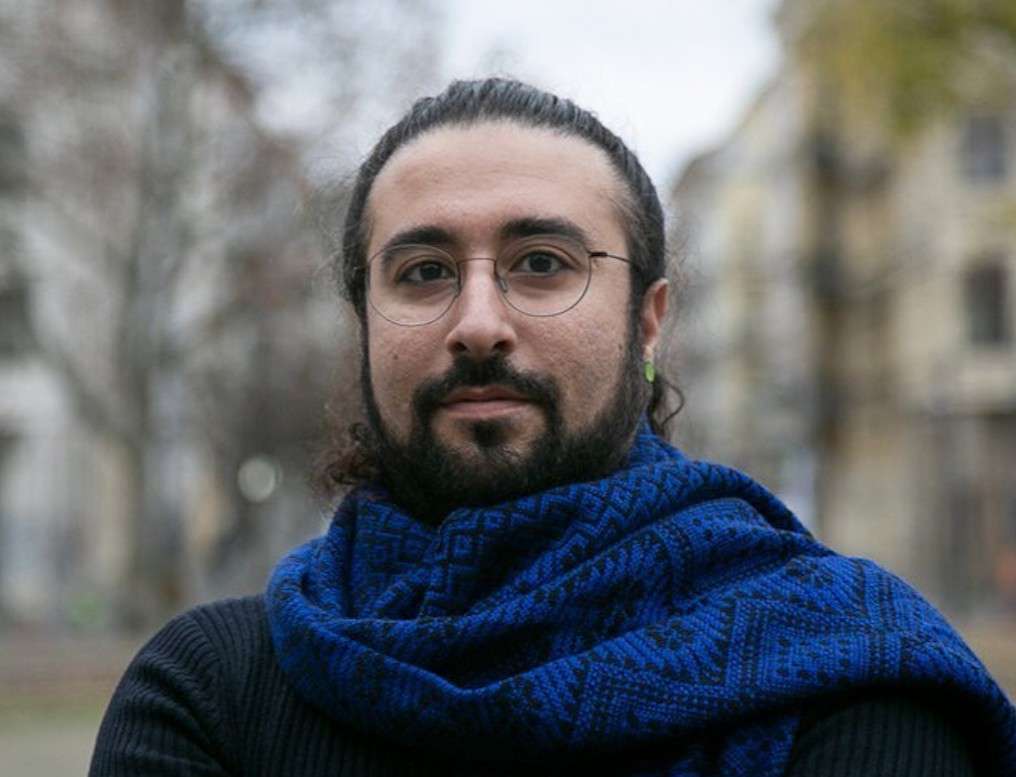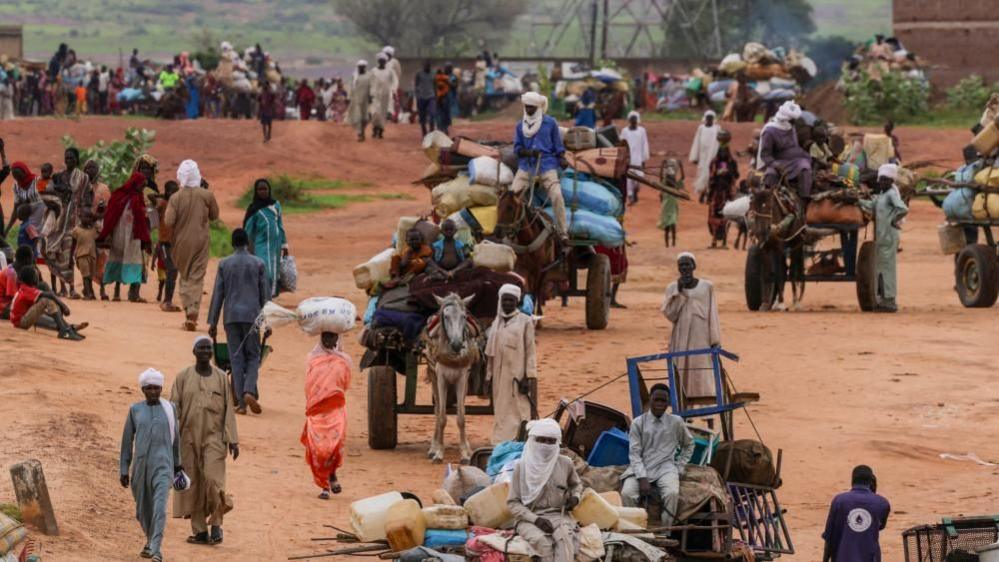Walid El Houri: Sudan takes legal action against UAE for supporting RSF

On March 6, 2025, Sudan initiated legal proceedings against the United Arab Emirates (UAE) at the International Court of Justice (ICJ), accusing the UAE of breaching the Genocide Convention by supporting the Rapid Support Forces (RSF), a paramilitary group implicated in atrocities against the Masalit people in Sudan’s West Darfur region. The UAE has denied the accusations.
Historical accusations
The allegations against the UAE are not isolated. In October 2024, the RSF mistakenlyshot down a military plane in Sudan’s Malha region, killing two Russian crew members and three Sudanese on board. The Conflict Observatory identified the aircraft as an Ilyushin Il-76, affiliated with Kyrgyzstan’s New Way Cargo, suggesting involvement in arms shipments from the UAE to the RSF. Identity documents found at the crash site included a passport and an ID of a Russian linked to a UAE-based company, Airline Transport Incorporation FZC.
Prior to this incident the Sudanese government had been repeatedly accusing the UAE of arming the RSF and prolonging the war while profiting from “the illegal exploitation of gold.”
In October 2024, Khalid Ali Aleisir, Minister of Culture and Information in Sudan shared a video of what he claimed was evidence of UAE supplying weapons to the RSF.

Context of the war
The almost two-year-long round of violence is the fourth civil war in the country’s history. The violence, fueled by ethnic and tribal divisions, can be traced back to the rule of former president Omar al-Bashir lasting from 1989 to 2019 before being ousted in a popular revolution. A fragile civilian-military coalition ensued but it soon collapsed under a military coup led by al-Burhan in October 2021.
Following the coup, tensions increased between the military and the RSF, especially over plans to integrate the latter into the army. This culminated on April 15, 2023, when RSF units launched coordinated attacks on SAF targets, including in key locations in the capital Khartoum, marking the beginning of the war.
The RSF, originally formed from the Janjaweed militias accused of atrocities in Darfur during the early 2000s, has been implicated in severe human rights violations, including attacks on the Masalit community in West Darfur.
According to data from the Armed Conflict Location & Event Data (ACLED), by the end of November 2024, over 28,000 people have been killed, though some estimate that the real number is far higher and could be as high as 150,000.
“The outcome of Sudan’s case against the UAE could set a significant precedent for international law, particularly regarding state complicity in human rights violations.”
Recent numbers from the International Organization for Migration estimate that more than 14 million Sudanese have been displaced since the beginning of the fighting in April 2023, including more than 3.5 million who have crossed the borders to seek refuge in neighboring countries. That is almost 30 percent of the total population of the country with half the population in need of humanitarian help.
Human Rights Watch (HRW) has accused both warring parties of bombing populated areas indiscriminately, with RSF “deliberately targeting hospitals,” according to Mohamed Osman, researcher for their Africa division.
The UAE’s role in other conflicts
Beyond Sudan, the UAE has faced scrutiny for its involvement in various regional conflicts. In Yemen, the UAE has been a key member of the Saudi-led coalition against Houthi rebels, a campaign criticized for causing civilian casualties and a humanitarian disaster.
Additionally, reports have emerged of the UAE supplying arms to factions in Libya, further destabilizing the region. These actions have raised concerns about the UAE’s adherence to international law and its role in perpetuating conflicts across West Asia and North Africa.
The UAE’s relationship with Israel has evolved significantly since the signing of the Abraham Accords in 2020, normalizing relations between the two countries. Despite Israel’s military actions in Gaza, which have been described as a genocide by various experts and human rights organizations and ruled as a plausible case of genocide by the ICJ, the UAE has maintained and expanded its diplomatic, economic and military ties with Israel, including helping Israel bypass the naval blockade through setting up a route from Dubai to Haifa.
In February this year, a video of the UAE ambassador to the US saying that he saw “no alternative” to Donald Trump’s plan to ethnically cleanse Gaza’s Palestinian population caused outrage.
Challenges to the ICJ
Sudan’s case against the UAE at the ICJ highlights the complexities of international relations and the growing challenges of holding states accountable for their involvement in foreign conflicts. This comes at a time of unprecedented violence and impunity, as international law and institutions face systematic erosion since the establishment of the UN.
In March 2025, the ICJ elected Japanese judge Yuji Iwasawa as its new president. The Sudan vs. UAE case coincides with another major genocide accusation at the court — South Africa’s case against Israel over its actions in Gaza. It is the seventh genocide case brought before the ICJ, two of which pertain to the ongoing war in Gaza.
READ: Türkiye’s role as a mediator in Africa
The outcome of Sudan’s case against the UAE could set a significant precedent for international law, particularly regarding state complicity in human rights violations. As proceedings unfold, the international community will closely watch how the ICJ navigates these complex legal and ethical issues amid growing attacks on international institutions and courts, particularly from the US and some of its allies.
The views expressed in this article belong to the author and do not necessarily reflect the editorial policy of Maghrebi.org.
Walid El-Houri is a filmmaker, journalist and researcher. He is currently the lead editor of openDemocracy’s North Africa West Asia, and managing editor of Jeem, an Arabic online platform on sex, sexuality and gender. He is also a lecturer at Bard College Berlin. He completed his PhD in Media Studies at the University of Amsterdam in 2012. He holds a BA in Filmmaking from the Saint Joseph University in Beirut, an MA in Journalism from the Lebanese University and the Paris II University, and an MA in Film Studies from the University of Amsterdam. His PhD dissertation, entitled “The meaning of resistance: Hezbollah’s media strategies and the articulation of a people”, explores the transformation of Hezbollah’s media strategies and productions, their military role, and the articulation of the notion of “resistance” as a political identity in Lebanon. You can follow him on X: @houriwalid
If you wish to pitch an opinion piece please send your article to alisa.butterwick@maghrebi.org.
Want to chase the pulse of North Africa?
Subscribe to receive our FREE weekly PDF magazine













